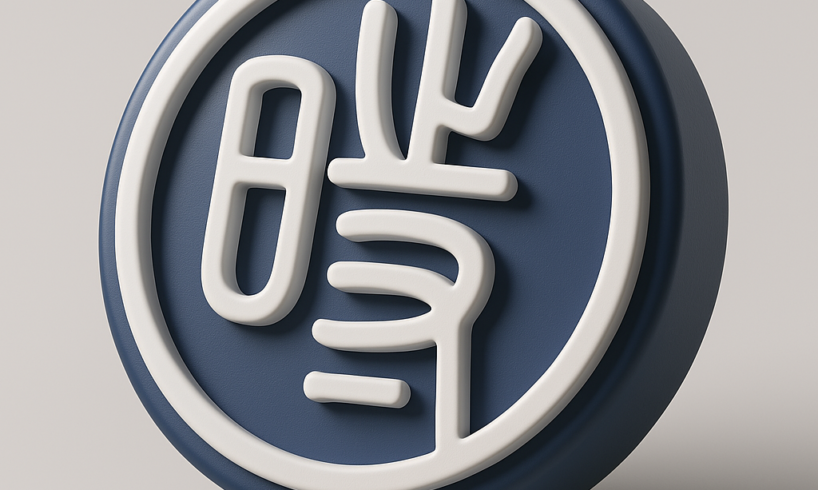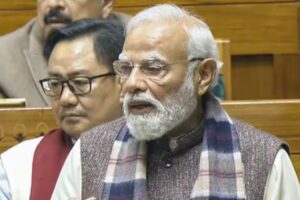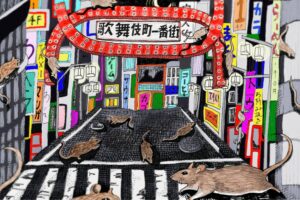
The involvement of Chinese nationals in Russia’s ongoing invasion of Ukraine received widespread media attention earlier this year. This included an extended interview by Chinese journalist Chai Jing with one such combatant, “Macaron,” which was was subsequently translated in two parts by CDT. The much smaller number of Chinese fighters on the Ukrainian side has received less notice. One notable exception is Peng Chenliang, who was killed in 2024 and, before joining the war, had reportedly been detained for seven months in China over his anti-Russia, pro-Ukraine posts on X. At The Guardian this week, Amy Hawkins reported on the stories of several other Chinese nationals fighting for Ukraine:
Like many Chinese volunteers, Tim is motivated by a combination of sympathy for the Ukrainian cause and increasing despair at the direction of his own country. Before he arrived in Ukraine, the only country he had visited outside China was Japan. But he’d considered emigrating for over a decade.
“Fifteen years ago, you could see problems, speak freely about them, and there would be people willing to discuss them,” Tim said of China. But those days are gone, he feels. He learned about the war in Ukraine by using a virtual private network (VPN) connection to watch videos on YouTube, which is blocked in China. “I don’t read news from Chinese websites at all … because the news there is all fake,” he said.
[…] It is not just ideology that draws people such as Tim, an unemployed car mechanic when he left China in 2023, to the frontline. China is in the grip of an unemployment crisis which has spurred dissatisfaction with the government.
Another Chinese volunteer, Fan, whose first name the Guardian has withheld to protect his identity, also moved to Ukraine to escape what seemed like a hopeless future back home.
[…] Fan is not an overtly political person. But still he felt the tightening noose of China’s crackdown on civil society, especially since the pandemic. As well as struggling economically, he said he had seen many of his favourite bloggers persecuted or detained under charges such as “picking quarrels and provoking trouble” – a catch-all term used to target anyone who displeases the authorities. “Many ordinary people, just by expressing views in live streams or on their personal platforms that don’t align with mainstream opinion in China, ended up being treated unfairly,” he said. [Source]
In many respects, the accounts in Hawkins’ report resemble those of Macaron and other Chinese volunteers for Russia (and, indeed, American volunteers for Ukraine). Frustration with economic prospects at home and the difficulties posed by language barriers are two common threads. For those motivated primarily by economic pressures, Macaron suggested in his conversation with Chai Jing that the choice of one side over the other might have been based on something as arbitrary as the greater ease of obtaining a visa to travel to Russia.
But while Hawkins describes a rejection of Chinese authoritarianism among volunteers for Ukraine, the equivalent driver on the other side of the lines appears to be the perceived chance to fight back against China’s historical opponents—as Macaron put it, “there are a lot of people who think that helping Russia means helping China.” Chai Jing commented that Zhao Rui, the first Chinese fighter known to have been killed on the Russian side, reportedly “joined the war because he’d heard he could fight the Japanese and [other members of] the ‘Eight-Nation Alliance.’ It is unclear whether Zhao Rui was aware that Russia itself had once been part of the Eight-Nation Alliance.”
Another major difference is in the information environment. Hawkins cites research by Tao Wang suggesting that though sympathy for Ukraine does exist in China, it is often not expressed, while broader public opinion tends to support Russia in line with official messaging. She also notes a relative scarcity of information about joining the fight on Ukraine’s side, while “Chinese social media is awash with videos selling the benefits of becoming a mercenary for Russia …. There is no indication that China, which denies providing military aid to Russia, endorses these mercenaries, but it allows the videos to spread on the country’s tightly controlled internet.”
The curious phenomenon of Chinese-language influencers vlogging from the front lines is covered in Chai’s interview, and Macaron admits playing a part in it himself. When he tried to argue in the other direction, however, he said the forbearance shown to pro-Russia content came to an abrupt halt:
Macaron: A lot of people were deep in debt back home, so they rolled the dice and came here. I guess they figured it was worth the risk of dying. A lot of guys also have these fantasies about being in battle. I got so many DMs that I stopped replying. I used to try to talk them out of it, but now I don’t bother—there are just too many of them, complaining about how bad the Chinese job market is, or how much debt they’re in. [Source]
Zhao Rui: [In a video, Zhao speaks to the camera. He is dressed in a green camouflage jacket with a hood and a tan mask over the lower half of his face.] Here’s some advice for you guys who’ve messaged me about coming here: don’t come. There’s nothing for you here. Get a job back home. If you work hard, you’ll earn just as much as you would here.
[…] Chai: Back home, some of these guys had seen your videos. So on some level, you may have inspired them, or been a factor that influenced their decision to come here. How did you feel when you heard they had died?
Macaron: I think it’s probably true that I did mislead them, to some extent. But after I reported what happened to them, after I exposed their deaths, Douyin straight up banned my account.
[…] Anyone who’s experienced battle, who’s seen war up close, never wants to experience it again. And they don’t tend to glorify it, either. It’s the people online hyping up war and acting all heroic that I find most disgusting. In war, there are no heroes. Everyone’s a villain, because you have no choice but to kill. [Source]
Macaron’s revulsion at the horror of war is echoed in another Chai Jing interview, also translated by CDT, with Chinese Civil War survivor Gao Binghan.





